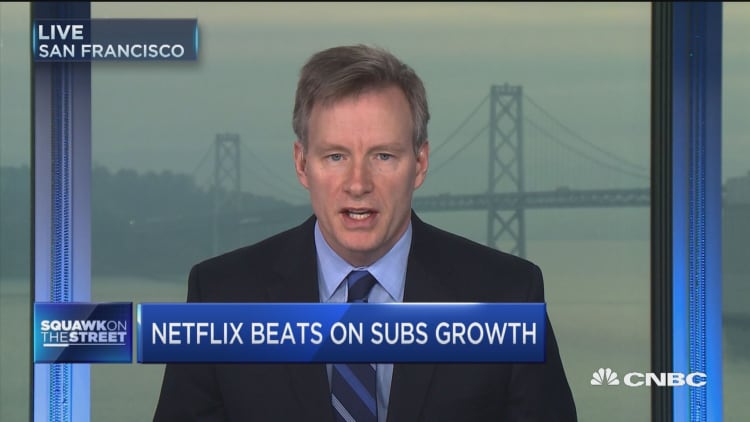Sky Chief Executive Jeremy Darroch has said that American internet companies such as Amazon and Netflix will not destroy the television industry.
Darroch said that while the two U.S. content platforms produce "fantastically high-quality programs," they are aimed at global audiences, which could be a disadvantage.
"Even when produced outside the U.S., there is a necessary uniformity to the creativity," he said Monday at a conference in Tallinn, Estonia.
Darroch added that Sky, which broadcasts in the U.K., Ireland, Italy, Germany and Austria, could create shows that represent European storytelling but with international appeal.
"America simply does not have our rich historic tapestry to tap into and, while U.S. drama formats set the benchmark for quality, they cannot compete for diversity and cultural resonance," he said, according to an online transcript of his speech.
The rush for eyeballs between online movie and TV streaming services such as Netflix, Amazon and traditional content-makers continues apace, with Disney set to remove its movies from Netflix and launch its own streaming service in 2019 and Amazon Prime on track to be in half of U.S. households by the end of 2017.
Darroch added that the mixture of public and commercial broadcasters in Europe meant the region is able to compete with U.S. shows.
"Much of the debate about the future of Europe's audio-visual industry has been colored by a fear that the internet will destroy our business models. I hope I have convinced you that is not happening," he said.

But tech companies such as Google and Facebook pose a threat if they are not regulated like TV broadcasters, he added in a piece published in The Times of London on Tuesday. YouTube has hit the headlines recently after advertisers withdrew campaigns in the face of inappropriate content, while Facebook said in October that about 126 million Americans may have seen posts by Russian operatives in an effort to influence U.S. politics.
"Not so many years ago, internet companies were small and pretty un-influential," he said. "Today they are some of the largest companies on the planet with a reach and scale of financial resources far exceeding that of previous media and communications companies.
"We are regulated because of our impact on society, yet their impact on society today is arguably much greater. Yet they face none of the scrutiny or regulation that broadcasters meet … At best, our valued standards of content are being eroded; at worst, fundamentally undermined."

